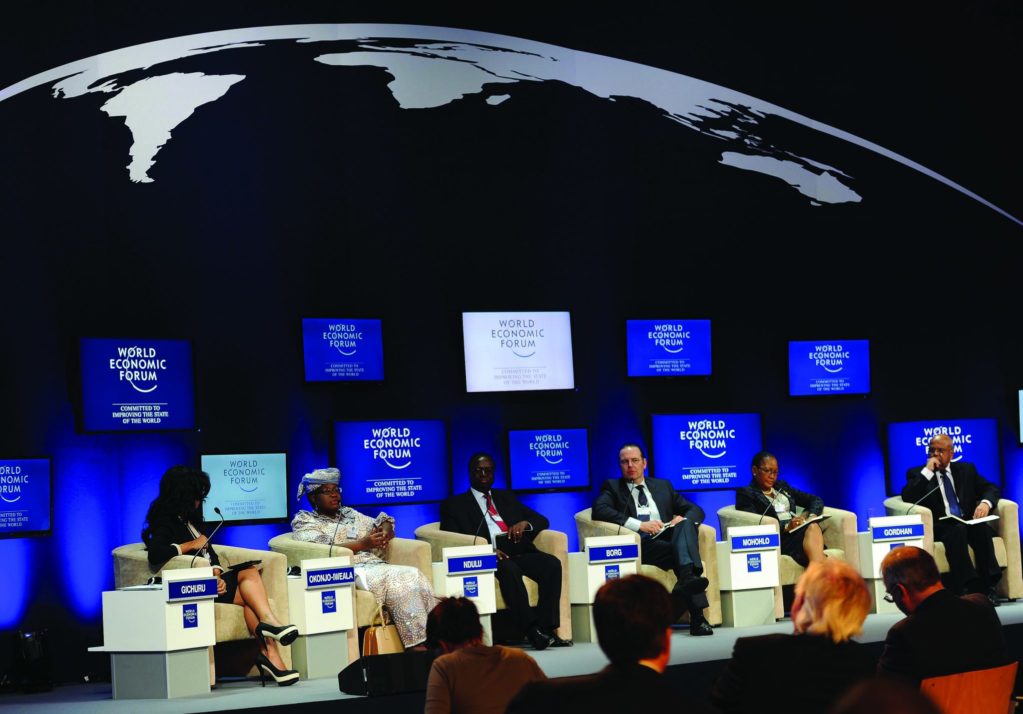The World Economic Forum’s Annual Meeting of the New Champions takes place on an annual basis in China, alternating between the cities of Dalian and Tianjin. The forum is affectionately known as the Summer Davos and is quickly building in stature attracting business, government, academic and civil society voices from across the globe. The event focuses on technology and innovation. CNBC Africa first attended the Summer Davos in 2013 with just a handful of African delegates. This year, however, saw a much bigger African contingent with representatives from Rwanda, Mali and South Africa out in full force. This despite the Ebola epidemic which caused many delays in the granting of Chinese visas and resulted in a number of cancellations, most noticeably from the usually sizeable Nigerian delegation.
The gathering involved three days of intense debate over the latest and greatest technological solutions aimed at creating a better world for all. Many of the innovations are specifically focused on solving some of the developing world’s most pressing problems such as health, education, energy and infrastructure deficits. With many of the globe’s brightest young minds wrapped up in intense conversation, the event itself is nothing short of an innovation frontier.
With hundreds of technological innovations on display it’s easy to reach the conclusion that developing economies have the opportunity to leapfrog the developed world by deploying new state of the art technology solutions rather than upgrading old, existing infrastructure. This is particularly true when it comes to solving the energy deficits in emerging markets. Global energy infrastructure is dated in many developed markets, having been rolled out as far back as the 1960s and 1970s. When it comes to deploying new, efficient and cost effective solutions, emerging markets can deploy best-of-breed solutions from the outset. Smart grids, nano batteries and off the grid renewable energy solutions are trail blazing when it comes to electricity provision.
The digital world we now live in is fast paced and ruthless. You simply can’t ignore the tsunami of technological innovations facing both individuals and businesses on a daily basis. Adapt or die was the phrase often repeated at the Meijiang Convention Center where the conference was hosted. New businesses have appeared out of nowhere, think Alibaba, Amazon and Uber, all of which challenge traditional models and use digital savvy to come out on top. Traditional business models, now more than ever, face extinction. Businesses are scraping at the coalface, trying to stay close to their customers where innovation is forcing a consumer revolution. Customers have the upper hand in a world where information is ubiquitous and fast eliminating competitive advantage.
One of the key discussion points in Tianjin focused on the skills needed to survive in this ever changing world, where robotics are becoming the norm and automation a necessity. Science, technology, engineering and maths skills (STEM skills) are a must for children growing up in this digital jungle. It’s all about blended learning of practical applications for the real world and less about reciting facts day in and day out as many traditional education systems are premised on and that have very little to do with equipping an individual for this dynamic work environment. Don’t forget this is a world where a couple of kids in a garage piece together a new app that, overnight, launches them into the billionaire stratosphere.
Everywhere automation is impacting traditional jobs, but just as those jobs are being lost they are being supplemented by job creation in the digital and technological space. The revolution in the retail market has been created by online shopping. McKinsey recently released a report indicating that 80% of all purchases are now researched online before they are bought. Widespread comparisons are quickly being made and prices are being forced down – the customer, now more than ever, is king.
Innovation is also forcing companies to look at how they are internally wired. Digital supply chains are improving internal efficiencies and fast eliminating hybrid supply chains, consisting of part paper and part digital elements. Information is ubiquitous and in some instances carries very little value because it is so widely disseminated.
For me, perhaps most striking is the reality of 3D printing. Imagine being able to print a bicycle and cycle off into the mountains. Brace yourself, this is our new reality.
